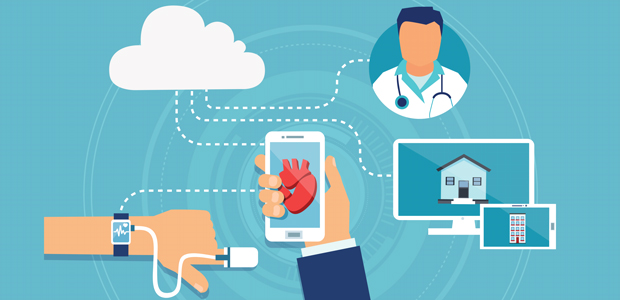
The benefits and challenges of relying on wearables for health
Wearables allow users to monitor their health, receive alerts for potential health issues, and preemptively contact a doctor. With many people housebound during COVID-19, wearables help people track daily exercise habits and maintain a healthy lifestyle while many gyms remain closed. Here, Emily Clark, Content Developer for The Manifest looks at the market for healthcare wearables and discusses how people use wearables for healthcare and the limitations of these wearable devices.
From Fitbits to smartwatches, the use of wearable technology has tripled in the last 4 years, according to Business Insider Intelligence.
The promise of better health has people eager to track their vital signs, including blood pressure, heart rate, and calories burned.
Some experts, though, say these devices are inaccurate and that people tend to over-rely on them.
Wearables track vitals and trigger health alerts
Wearables use sensors to track the user’s physical activity and vitals over time.
Users can access their personal data using a range of wearable devices, including:
- Smartwatches
- Wristbands
- Patches
- Apps that sync the wearable to the user’s smartphone
The proximity of these devices allows them to provide users with real-time health and fitness recommendations.
People can quickly glimpse their heart rate, blood sugar levels, or steps taken.
According to Raconteur, 62% of people think wearables will put them in control of their health and 60% think they will improve their overall health.

Insights from wearables both promote healthy habits and mitigate the risk of life-threatening situations.
For example, wearable ECG monitors can measure electrocardiograms and send the data to doctors who can recognise the triggers for degenerative heart disease.
As data accumulates and the market for wearable devices expands, wearable technology will provide support for a greater range of medical conditions.
Users shouldn’t rely solely upon wearables
Wearables are a new technology and dependent of users for a lot of the data they collect. This leaves room for error on a number of fronts.
For example, wearables can misdiagnose users based on bad readings or inputs, which can result in costly medical visits and needless anxiety.
The Apple Watch EKG software uses electrodes on the back of the watch to detect irregular heart rhythms and atrial fibrillation.

This is a valuable diagnostic tool for users at risk of a heart attack.
However, people of all ages periodically experience irregular heart rhythms without any medical significance.
Regardless, an Apple Watch may tell a user to seek immediate medical attention when there is no need.
Cardiologists say that it’s ineffective to measure heart rhythms without numerous and more sensitive inputs than a single device.
Despite this, the Food and Drug Administration cleared the EKG software without subjecting the product to peer review or releasing the test data.
“Companies could engage more with independent researchers to validate their products - that is - provide evidence from published, peer-reviewed journals that their products match up, to a reasonable degree, with gold standard methods for measuring such biometrics,” said Dr. Jonathan Peake, a lecturer at the Queensland University of Technology.
People shouldn’t solely rely on wearables because they’re untested and prone to false positives. Exercise common sense when interpreting data from a wearable.
Balance data from wearables with common sense
Wearable users should consider their unique health situation when presented with alarming data.
For users with existing medical conditions, being sensitive to wearable data is highly valuable. For example, responding to an alert about a spike in blood pressure could prevent a heart attack or a stroke.
That said, at-risk users should never substitute their regular medical screenings for the data of a wearable device. Wearables are not tested enough to support this level of trust.
Users without existing medical conditions, though, should take any alerts with a grain of salt.
Doctors say that it’s not helpful for healthy people to be overly concerned with their vitals, as obsessing about non-existent health issues can lead to problems.
In a culture increasingly reliant on technology, experts worry that wearable users will adopt hypochondriac tendencies.
A recent study found that using a fitness tracker could lead to feelings of self-loathing and over-reliance, though the sample size was small.
Wearables are fallible and users should consider the data relative to their bodily symptoms and medical history. If a worrying condition persists, consult a doctor.
Personal data from wearables is changing health care
Wearables provide visibility into peoples’ health and fitness, though they’re not always accurate.
Users with serious medical issues benefit from tracking their vitals, despite the occasional false positive. Being overly-responsive to a wearable device incurs needless stress and medical expenses for healthy users.
As the market for healthcare wearables grows, regulations would serve to ensure the accuracy of these devices and the accountability of manufacturers.

